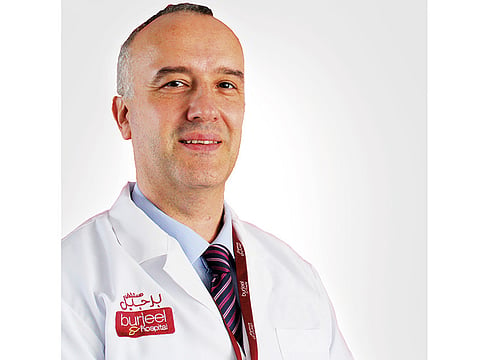50-plus? Get screened for colorectal cancer
Early diagnosis is the key to preventing this second most common cause of cancer deaths from taking its toll

Dubai: Colorectal cancer is most common in those aged 50 years or above and affects different ethnic and racial groups of people.
But there is a lack of awareness about how common and how fatal it can be. In fact colorectal cancer is the second leading cause of death from cancer after breast cancer, and the second most common cancer among men in the UAE. Among females in the UAE, colorectal cancer is the third most common cancer.
Colorectal cancer is also known as bowel cancer or colon cancer; it originates in the lower parts of the large intestine (colon/rectum). The main causes of colorectal cancers are old age and lifestyle, but a minority are caused by genetic disorders.
Lifestyle factors are considered to be bad diet, obesity, smoking and lack of physical activity.
Symptoms include change of bowel habits, anal bleeding and anaemia-like symptoms including palpitations and tiredness.
But due to the nature of some of these symptoms, there is a sense of embarrassment amongst both genders to talk about them and seek early medical help. Lack of awareness and education are also contributing factors that stop people from going to a doctor.
Those above 50 years of age must exercise regularly as this is shown to reduce the risk of developing colorectal cancer.
General care doctors and nurses should also talk to patients aged 50+ about the importance of early screening. If everyone aged 50 and above is screened regularly, six out of 10 deaths can be prevented.
Colorectal cancers are detected via a colonoscopy and if large polyps are discovered, a biopsy follows.
Treatments include surgery, radiation therapy, chemotherapy and targeted therapy. An advanced recovery programme for minimally invasive surgery is usually undertaken on colorectal cancer patients.
- The writer is gastroenterology consultant and head of department of gastroenterology at the Burjeel Hospital in Abu Dhabi



